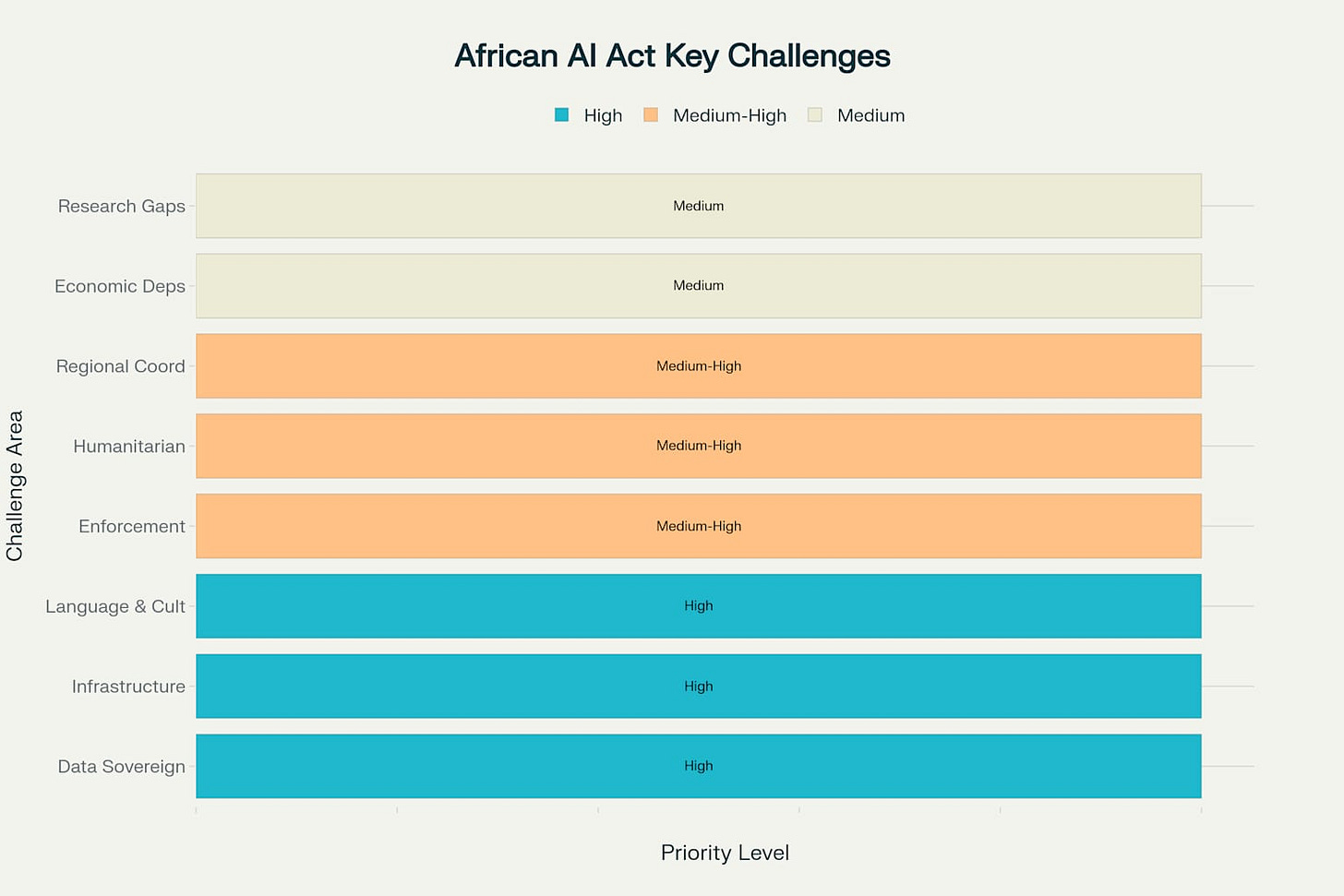What Would an African AI Act Look Like?
Commentary
AI regulation is accelerating globally. The EU has passed its AI Act. Brazil and the U.S. are forging ahead, some explicitly, others through indirect legal routes.
Africa? Still deciding.
The African Union’s Continental AI Strategy is a good start, it is high-level, ambitious and pan-African. But it isn’t law. It doesn’t bind governments or protect people.
So, what if Africa created its own AI Act? Not a copy-paste of Brussels. A real law, shaped by African priorities, infrastructure and risks. Here's what it should include and avoid.
The African Union has a strategy. But Africa still lacks enforceable AI regulation. What would an African AI Act need to reflect real risks, local context and infrastructure gaps?
what a realistic african ai act needs to include
Infrastructure first
Digital divide: Just 33% internet penetration in Africa vs 92% in the U.S.
Solution: Regulation must mandate public investment such as data centers, local compute and high-speed access not just restrict model deployment.
Example: Nigeria’s National AI Strategy prioritizes infrastructure including compute hubs and local development ecosystems.
Language & cultural representation
Problem: 95% of African languages have no digital representation.
Solution: Require public datasets and AI systems to include African languages and informal knowledge.
Precedent: InkubaLM’s African language model shows what is possible if supported.
Humanitarian and public sector accountability
Use cases: AI is already being used in refugee camps, healthcare and cash transfers.
Risk: These are low-rights environments. People can not opt out or sue.
Fix: Mandatory risk audits, consent protocols and oversight for AI in humanitarian settings.
Data governance from below
Who owns the data? Too often, it is offshore processors, not African citizens.
Model: Build on the Malabo Convention. Enforce citizen participation and local control.
Term to use: Data sovereignty.
Regional coordination
Avoid 55 separate laws. Instead, harmonize through AU, ECOWAS, EAC and SADC.
Existing moves: ECOWAS is integrating AI into security frameworks. EAC is building a digital skills alliance.
what to avoid
Don’t copy the EU AI Act
Reason: EU-style risk classification assumes enforcement capacity Africa doesn’t yet have.
Better: Design frameworks that match actual institutional realities and bandwidth.
Don’t make it another ethics-only strategy
Problem: Many national plans talk values but offer no legal recourse.
Solution: Define punishable harms, designate enforcement bodies and fund them.
Don’t ignore enforcement
Why it matters: Laws without capacity are paper shields.
Positive examples: Rwanda, Ghana and Kenya are embedding enforcement plans in their AI strategies.
closing reflection
Africa needs enforceable AI rules, not more workshops or declarations.
The AU’s strategy lays the foundation. Now, it is time to turn principles into law. A grounded African AI Act would protect rights, close the infrastructure gap and create legal certainty without mimicking foreign models that never faced these constraints.
What would you want in an African AI law?
Let’s build it deliberately, collaboratively and with full awareness of what is at stake.


